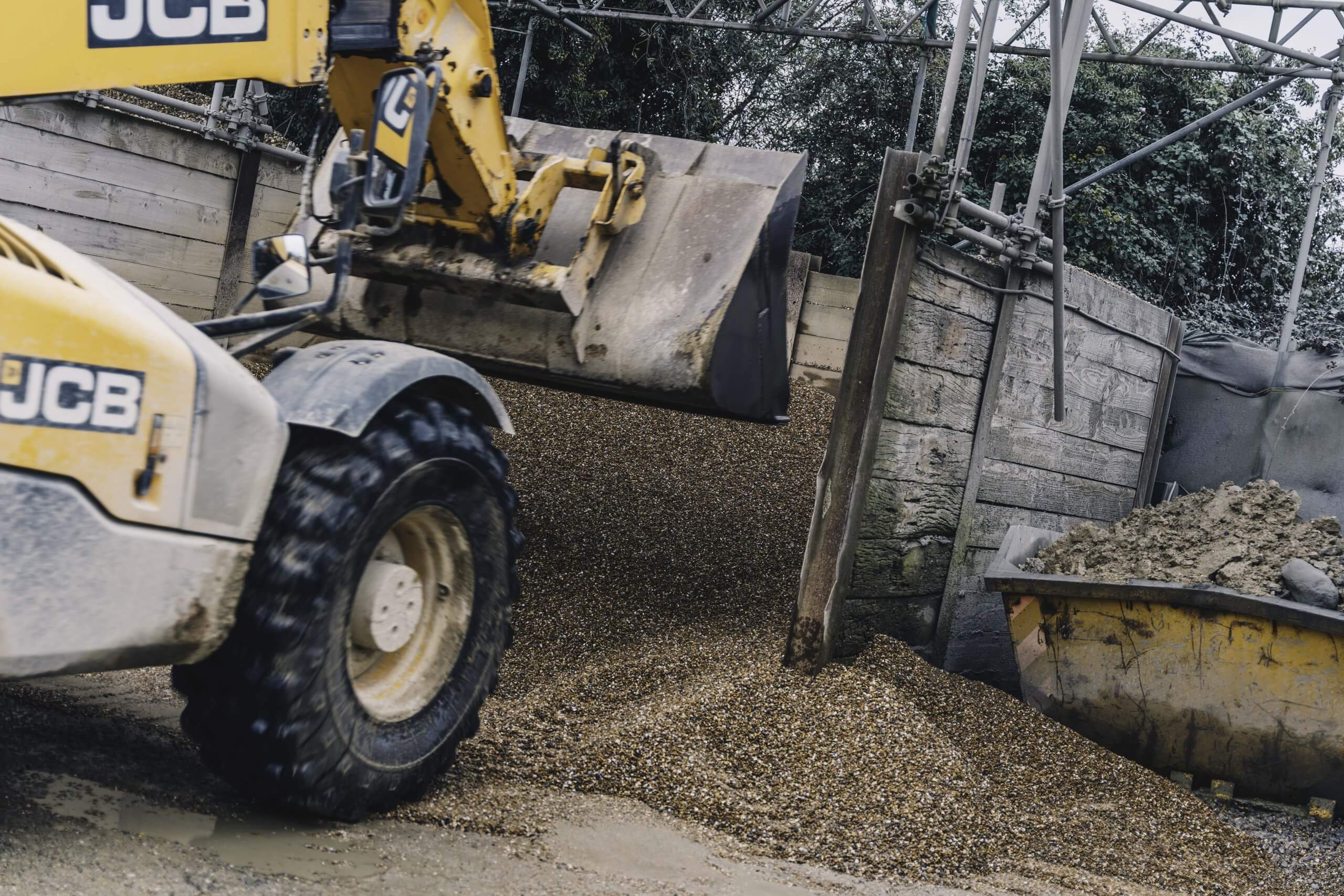Aggregates and Their Role in Concrete?
When we mix concrete, we do it using a combination of cement, water and aggregates. These are mixed in different quantities depending on the type of job you are working on.
Most people will understand the roles that the cement and water play in concrete, but fewer people understand the vital importance of the aggregates – some may not even be sure what aggregates are.
This month we’re taking a closer look at aggregates in general and, more specifically, why they are such an important component in construction.

What are aggregates?
The term ‘aggregates’ covers a broad range of particulate material used in construction, landscaping and other applications. That can include things like sand, gravel, recycled concrete and ballast, as well as crushed stone and rock, such as granite and slate.
Aggregates are split into two further types – coarse aggregates that are bigger than 4.75mm and fine aggregates (such as sand) that are smaller.
What types of aggregates can be used in concrete?
There are usually two types of aggregates used in concrete – sand and a coarser grade material such as stone or gravel. When adding coarse aggregates to concrete, you’re generally looking at pieces that are between 4.75mm and under (known as fines) and 20mm/10mm, depending on the mix type. They should also be as clean and as free of chemicals, coatings of clay and other pollutants as possible to prevent contamination and, ultimately, deterioration of the concrete.
What are the benefits of using aggregates in concrete?
Using aggregates in concrete brings a number of useful benefits, perhaps the most significant being that it’s more versatile in its flexibility of use, as the mix design can be tailored further depending on the desired application. It also makes the final concrete considerably cheaper than just using cement. Concrete is usually made up of about 60-80% aggregates, depending on what you’ll be using it for, so your final cost as the consumer will be much reduced compared to using cement alone.
Aggregates are also far less permeable than cement, so you’ll use less water as well.
Here are some of the ways aggregates can improve the performance of concrete:
- More compact concrete – in other words, there will be fewer pockets of air.
- With fewer pockets of air, the concrete will have increased density and therefore compressive strength
- Improved thermal performance, including conductivity and insulation
- Reduction of shrinkage and cracking
- Improved water resistance
Using different aggregates that vary in size and shape can improve particular aspects of the concrete’s performance – for instance, more angular bits of gravel will make the concrete stronger but make it less workable.
Here at Stewart Brothers Concrete, we’ve had experience in the concrete business for over 35 years and can supply the perfect mix design with the right combination of water, cement and aggregates – whatever your application. We can then deliver it to your site when you need it, with optional extras such as concrete pumps for those harder to reach places to ensure a smooth and efficient delivery every time.
Get in touch with us now to find out more or use our online form to get a fast, competitive quote today.

